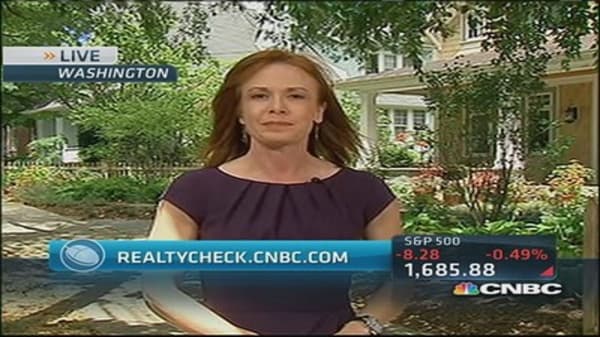"It's a confluence of events, really, and all of them help the spread between jumbo and conventional loans," said Matthew Graham, COO of Mortgage News Daily.
"Nonagency jumbo lenders began dipping their toes in the water as early as 2011, and even more so into the end of 2012. Strong loan quality due to tight underwriting combined with competition between large banks and securitzers has led to relatively increased demand. Wells and Chase are keen to compete with securitizers like Redwood or Sequoia in order to capture potential income streams from jumbo clients' bank business."
(Read more: Higher mortgage rates may mean easier credit)
In addition, Fannie Mae and Freddie Mac, which back and bundle two-thirds of conventional loans, have been raising the fees they charge to banks, so-called guarantee fees, mostly to protect themselves against default. Guarantee fees have nearly doubled in just the past year.
"As G-fees move higher, this increase gets added into conforming mortgage rates," said Guy Cecala of Inside Mortgage Finance. "It's a factor, but not the biggest one, allowing portfolio jumbo lenders to match or undercut conforming mortgage rates."
The bigger factor, said Cecala, is that 92 percent of jumbo mortgages are made by banks that fund the loans with their deposits and then hold them in a portfolio. Given that the interest paid on consumer deposits in banks is still incredibly low, lenders can still make a profit on mortgages priced at 4 percent or less if they want to. In fact, jumbo loans, by some lenders, can actually cost less than conforming.





